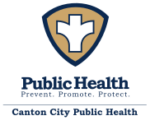Overview
Position Overview
The Office of Preparedness & Response (OPR) provides emergency response policy making, planning, training, exercise, and incident management and evaluation services for all IDPH programs. It coordinates the public health and medical technical services and resources that Illinois provides during a disaster through the State Incident Response Center (SIRC). Working with SIRC agencies, OPR can offer certain federal and State emergency medical countermeasures for the public and responders through local public health departments and hospitals. OPR also provides financial and technical resources to local health departments, hospitals, and emergency medical services, and regulates emergency medical services and specific hospital programs.
OPR includes the following Divisions:
Disaster Planning & Readiness
Emergency Medical Systems & Highway Safety
Budget operations fall directly under the management of the Deputy Director.
Essential Functions
- Provide oversight of Regional Section staff in the coordination and execution of sub-recipient monitoring for the Federal Hospital Preparedness Program (HPP).
- Reviews and evaluates Emergency Medical Services (EMS) Regional, EMS System and EMS Provider plans and amendments.
- Serves as working supervisor.
- Provides guidance and direction to subordinate staff, hospitals, public health staff, and EMS professionals regarding the interpretation of the Emergency Medical Services (EMS) laws, rules, regulations, and National EMS Education Standards.
- Reviews EMS and trauma related licensure issues and maintains current knowledge of different levels of licensure, including but not limited to, renewal requirements.
- Receives education training and participates in emergency response activities such as staffing the public health Emergency Operations Center (PHEOC); Incident Management Team (IMT); State Emergency Operations Center (SEOC); Joint Operations Center (JOC); or the Unified Area Command (UAC).
- Performs other duties as required or assigned which are reasonably within the scope of the duties enumerated above.
About Illinois Department Public Health
In Illinois, if you have eaten at a restaurant ... required hospital or nursing home care ... vacationed at a campground or swam at a public beach or pool ... drank a glass of milk ... got married or divorced ... had a baby, the Illinois Department of Public Health (IDPH) has touched your life in some important way.
Assuring the quality of our food, setting the standards for hospital and nursing home care, checking the safety of recreation areas, overseeing the inspection of milk producing farms and processing plants, maintaining the state's vital records and screening newborns for genetic diseases are just some of the duties of IDPH.
In fact, IDPH has 200 different programs that benefit each state resident and visitor, although its daily activities of maintaining the public's health are rarely noticed unless a breakdown in the system occurs. With the assistance of local public health agencies, these essential programs and services make up Illinois' public health system, a system that forms a frontline defense against disease through preventive measures and education. Public health has provided the foundation for remarkable gains in saving lives and reducing suffering. Today, life expectancy is 80 years for women and 74 years for men compared with fewer than 50 years at the at the beginning of the 20th century.
In the past, IDPH directed state efforts to control smallpox, cholera and typhoid, virtually eliminated polio, reduced dental decay through fluoridation of community water supplies, and corrected sanitary conditions that threatened water and food supplies.
Today, IDPH has programs to deal with persistent problems that require continued vigilance – infectious diseases, such as AIDS (acquired immunodeficiency syndrome), HIV (human immunodeficiency virus), SARS (severe acute respiratory syndrome) and meningococcal disease; foodborne and communicable diseases, such as E. coli 0157: H7, monkeypox, salmonella and West Nile virus; vaccine preventable diseases; lead poisoning; lack of health care in rural areas; health disparities among racial groups, breast, cervical and prostate cancer; Alzheimer's disease; and other health threats -- sexually transmitted diseases, tobacco use, violence, and other conditions associated with high-risk behaviors. In addition, IDPH has been charged with handling the state's response to the COVID-19 pandemic and the threat of bioterrorism.
IDPH, which is one of the state's oldest agencies, was first organized in 1877 with a staff of three and a two-year budget of $5,000. IDPH, now has an annual budget of $2.9 billion in state and federal funds, headquarters in Springfield and Chicago, seven regional offices located around the state, three laboratories, and 1,200 employees.
IDPH is organized into 12 offices, each of which addresses a distinct area of public health. Each office operates and supports numerous ongoing programs and is prepared to respond to extraordinary situations as they arise.


